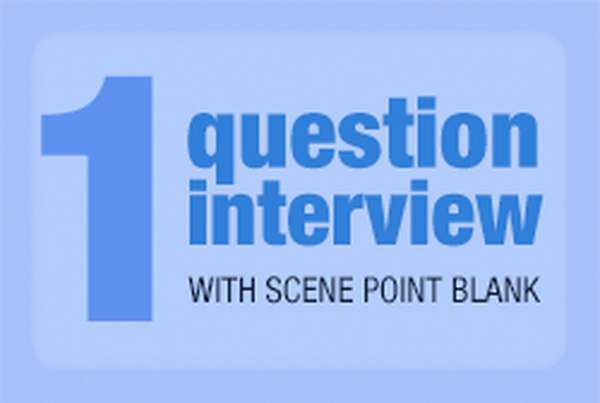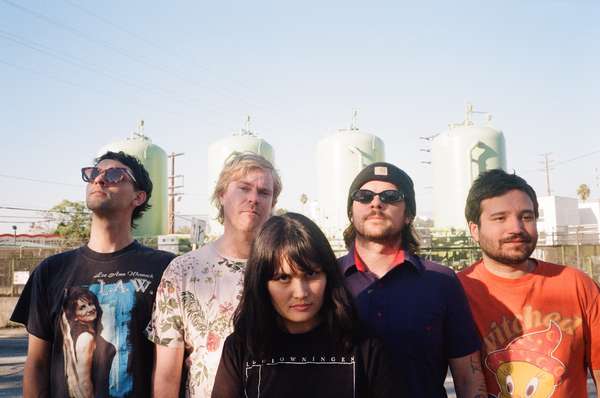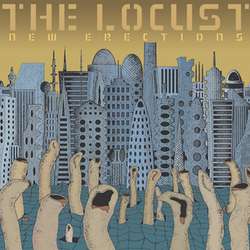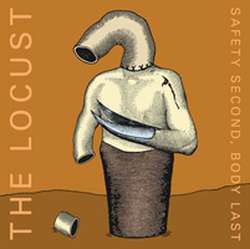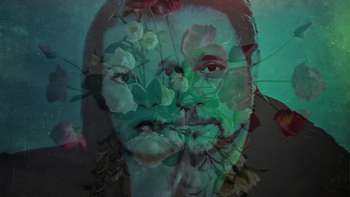Eric Jernigan (Driftoff)
SPB: Would you license your music for use in another medium if given the opportunity?
Eric: We're open to the idea so long as we can stand behind the content of the film or commercial. The fact is, many bands in our genre have come to accept that the formerly modest goal of recouping recording costs is now pretty tough. Even going on tour is an uphill battle, financially speaking. Were we to take a small licensing paycheck we'd use that cash to make another album or to buy flights for an overseas tour. This band and many like us are labors of love and we've seen good ones drop like flies over the years as members get burnt out funding van repairs and covering merch bills with their day jobs. We wanna play music and tour until we're dead so we'll explore any avenue that may help facilitate that mission.
Justin Pearson (Three One G, Retox, The Locust)
SPB: How do you find new music?
Justin: There is no one way to find music, or any art for that matter. Maybe the universe presents it or maybe your subconscious welcomes it. For me, I tend to find it within my friends and comrades, or by touring around the world and connecting first hand with other artists. Of course there is the occasional stumbling upon something grand and of course the new stuff by certain legends, older generations, and even strange side projects and random works that surface and make their way around the planet.
Patti Yang
SPB: Do you feel your experiences growing up in Communist Poland have shaped your views on the relationship between politics and art?
Patti: Art has always served as a powerful form of commentary on politics and on society. Back in the communist Poland anything released to the public had to go through strict censorship which made sure nothing would “pollute the minds” with ideas, question the power. It tried to keep people in the dark but luckily, to some extent, kept failing. Totalitarian systems are, by principle, based lot more on primal fear than democratic ones. It restricts basic freedoms: freedom of speech, freedom to travel, freedom to own. It does so in a lot more transparent way; by punishment. In the Polish communist regime the entire art scene was ran by the government apparatus. From record labels through live venues, record shops, cinemas, galleries, bookstores--the culture was thriving but it was structured and carefully monitored by the Ministry under the communist party. Foreign albums and books were only available in secret--they were literally smuggled and passed around amongst friends--unless they were deemed “safe” and made available in the open, but even then often in false translation. I remember my parents listening to The Rolling Stones with an excitement of naughty teenagers and seriousness of major adversaries.
Perversely, the reason culture was so vibrant was because quite a few artists allowed into the spotlight would give a strong voice in opposing the regime: always under a veil of metaphor, encrypted in their art. The most successful ones bit the hand that fed them and therefore played a dangerous game.
So art itself was a form of politics and even love songs had a tinge of it or a sub-meaning all together. Today, in a society perpetuated by the egotistical race for wealth and status rather than an intelligent, collective pursuit of freedom, peace and fair abundance, there is far less to unite over. A lot of us know and see things aren’t right but most of us are hopeless to the wrongness of it. And someone out there, in corporate media and business world, still makes decisions on what we’re being served. If these decisions are driven by profit without higher values we end up with disposable, unimportant pile of entertainment which is just as distorted as the issues it so safely avoids. I am not saying all art should be highbrow and it’s not up to art to change the way the world is ran, but art does have the power that politics often lacks. It can touch people. If it’s true and looks for truth of whatever kind it connects without explanation.
Humans are all artists, it’s inherently in our nature. We just gotta keep creative and sensitive and protect our deep innocence to appreciate things that are truly worth it.
Kyle Fisher (The Dirty Nil)
SPB: What song in your active set list requires the most practice? What part is the hardest to get down?
Kyle: “Little Metal Baby Fist”
The second verse is tough in that song to maintain a good tempo. Sometimes the snare roll can slow the song down. We've got it now though.
